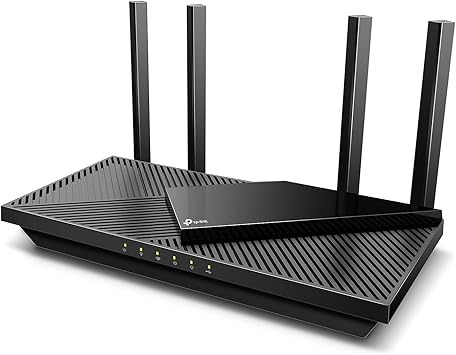U.S. considering ban on Chinese-made router and its probably already in your home
U.S. is considering a ban on a Chinese-made internet router that is probably already in your homeThe TP-Link router has sparked probes into possible Chinese interference through cyberattacksMadeline SherrattSunday 05 January 2025 15:28 GMTThe TP-link router branded as an Amazon bestseller has come under fire as officials suggest the device is a possible threat to national security (Amazon UK)The latest headlines from our reporters across the US sent straight to your inbox each weekdayYour briefing on the latest headlines from across the USYour briefing on the latest headlines from across the USI would like to be emailed about offers, events and updates from The Independent. Read ourprivacy policyU.S. officials are flaunting the idea of an outright ban on the sales of a popular Chinese-made internet router a device that is sitting in many homes.The investigation comes as concerns have mounted over cybersecurity risks connected with router manufacturer TP-Link Technology Co. The device is listed as a best seller on Amazon, with prices ranging from $50 to $100 for most models.Established in China, but sourced from a California unit, the TP-Link router use has sparked several probes into possible Chinese interference through cyberattacks launched from the devices.Several federal agencies, such as the Commerce, Defense, and Justice departments, are investigating the product and the company behind it. All are looking at if the devices pose a security risk and could suggest a ban as soon as 2025, company sources recently told The Wall Street Journal.An office within the U.S. Department of Commerce has already reportedly subpoenaed TP-Link for information, added the sources.An analysis launched by Microsoft in October discovered that a Chinese hacking entity was maintaining a large network of compromised network devices most of which included thousands of compromised TP-Link routers, wrote the WSJ.Hackers were discovered to have targeted Western organizations such as think tanks, government organizations, not-for-profits, and defense department suppliers, through the TP-Link network, reported the outlet.The U.S. has expressed concerns with other Chinese-linked products, such as TikTok, which faces a ban in the U.S. starting next month (AP)But this is not the first time officials have expressed concerns over Chinese interference orchestrated through TP-Link. In August, U.S. lawmakers, Republican Representative John Moolenaar of Michigan and Democratic Representative Raja Krishnamoorthi of Illinois, urged the Biden administration to probe the TP-Link company for potential security risks.The TP-Link router reportedly accounts for 65 percent of the U.S. market and is widely used by homeowners and businesses even federal government agencies.Though it is not immediately clear whether the ban will come into force, it will likely be handled by the Trump administration in the New Year if found to breach national security.The Independent contacted TP-Links California Unit, the U.S. Department of Commerce, and the Chinese Embassy in Washington for comments.A TP-Link spokeswoman provided a comment to the Journal and defended their security network.We welcome any opportunities to engage with the U.S. government to demonstrate that our security practices are fully in line with industry security standards, and to demonstrate our ongoing commitment to the U.S. market, U.S. consumers, and addressing U.S. national security risks, they said.Fears over Chinese devices and companys backed by the Asian powerhouse are nothing new. Earlier this year, President Joe Biden signed legislation that would ban the distribution of TikTok in the U.S. if parent ByteDance fails to sell it ahead of January 19.The ban on TikTok came as officials were weary of the Chinese government being able to access sensitive U.S. user data through the app. ByteDance has appealed the decision to the Supreme Court, which agreed to hear the case just days before the ban begins. Trump has also targeted China as a threat to the U.S. economy and jobs. He has suggested further tariffs - to the tune of 10 percent on top of what already exists - on Chinas products coming into the U.S. The president-elect has said the tariffs are needed to stop drug flow into the U.S. and help American companies compete with Chinese manufacturers. More aboutU.S.ChinesebanSecurityChinaJoin our commenting forumJoin thought-provoking conversations, follow other Independent readers and see their repliesMost PopularPopular videosSponsored Features


